When Beijingers can't return home: Is China going overboard with its zero-Covid measures?
Even as the Chinese government sticks to its zero-Covid strategy, with lockdowns and other measures to handle even single cases of infection, Zaobao correspondent Yang Danxu observes that sometimes under the pressure of meeting the policy, the authorities can go overboard with their measures. Although the people have largely adopted a grin-and-bear-it attitude, if this policy is set to persist for some time, perhaps some consideration and practical adjustments are in order?
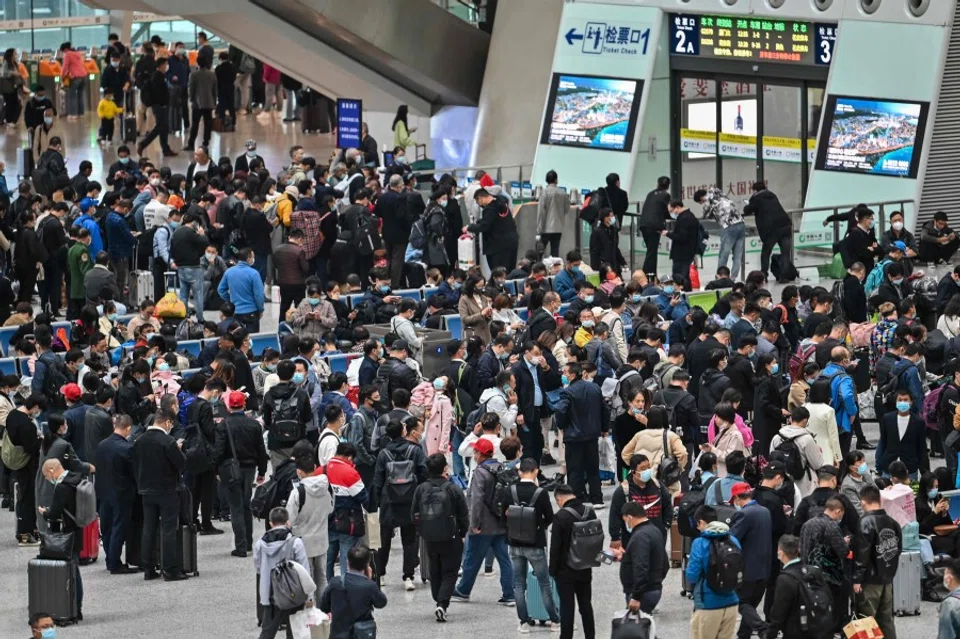
On 2 November, the Beijing municipal government apologised for the "infinite loop" (死循环) for people trying to return to Beijing.
Over the past few days, Beijing has tightened entry control measures, and many Beijingers outside of the city complained of being caught in an infinite loop as they tried to return. Some had tickets for their return trip to Beijing on the high-speed rail (HSR), but were unable to enter the station; some tried to book HSR tickets for Beijing, only for the system to show an error message; others who were unable to return to Beijing had been asked to quarantine themselves where they were, because Beijing was showing that it had a few medium- to high-risk Covid-19 areas.
Beijing's 'infinite loop'
The scenario in the movie Lost on Journey (人在囧途) - depicting the travails of two guys trying to get home for Chinese New Year - is also happening around me. A Singaporean friend working in Beijing who had just completed a 14-day quarantine and seven days of health monitoring in Shanghai saw a notification from Beijing authorities to delay returning to Beijing - my friend immediately packed and rushed to the train station without even changing for fear that the positive Covid-19 case at Shanghai Disneyland might make Beijing shut its doors again.
At a press conference on 2 November, the Beijing municipal government apologised for the "inconvenience" caused by the control measures, and committed to making the measures more precise, and opening up channels to help people affected by the inconvenience. The prompt apology and rectification showed a degree of caring, and eased the furore surrounding this infinite loop.
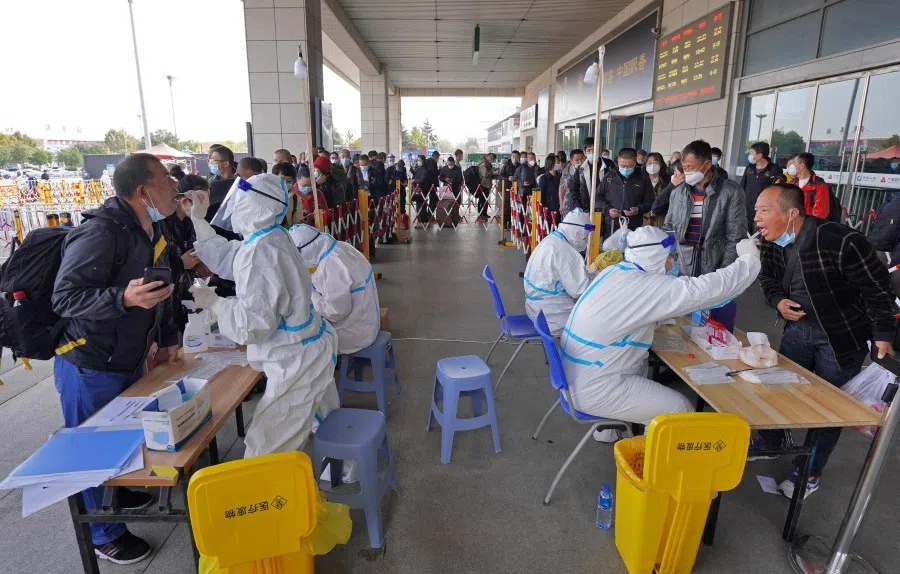
Last year, before the pandemic was brought under control in China, there were several laughable situations across China. When the latest wave of infections broke out in mid-October, high-pressure pandemic measures also resurfaced. A few days ago, two HSR trains bound for Beijing were halted because close contacts of a positive Covid-19 case were on board, while hundreds of travellers were quarantined where they were. In Yanshan county in Jiangxi, all the traffic lights were switched to red because one person tested positive.
The sensor on my door, which was meant to trigger an alert each time it opened or closed, fell off and was ignored for days.
When caution is taken to the extreme
After going through a home quarantine myself, the illogical pandemic measures hit closer to home. On 17 October, the day I returned to Beijing from a work assignment at Jinta county in Jiuquan, Gansu, two Covid-19 cases were reported in Xi'an, Shaanxi. These two people had been in Jinta county a few days before testing positive, and so I was listed as a subject of tight monitoring.
The first couple of days of quarantine, I marvelled to myself how organised everything was, given that China's residential communities had plenty of experience. But after a few days, I realised that I had spoken too soon.
I was not allowed to set foot outside, but the garbage left outside my door was not cleared for days, and I had to "secretly" take it to the garbage facility myself. The sensor on my door, which was meant to trigger an alert each time it opened or closed, fell off and was ignored for days. And on the seventh day, I was to go - on my own - to get tested at a facility 1.5 kilometres from my residence. When I asked in puzzlement whether this might lead to a leak, the community staff self-righteously said: "This is the doctor's arrangement; we have asked our superiors."
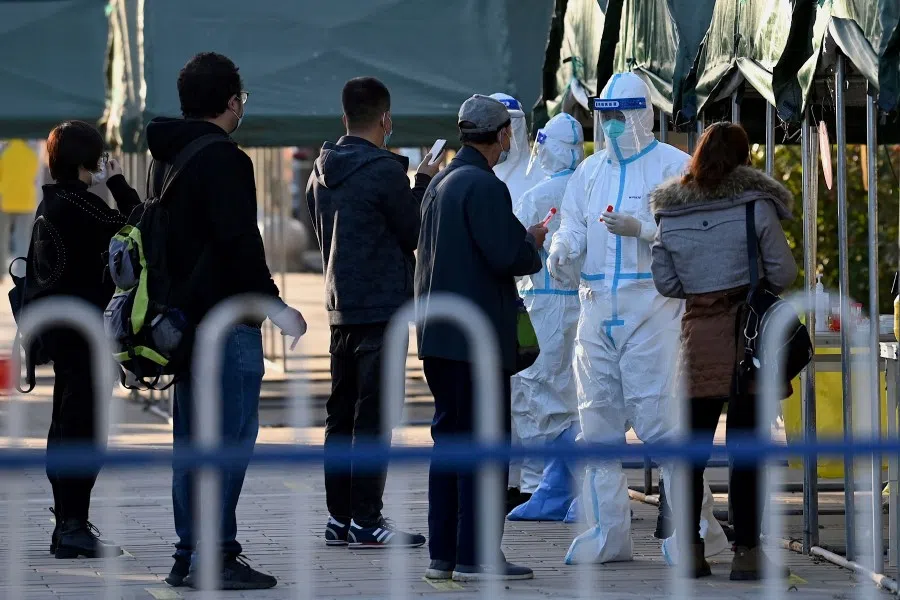
Even more laughably, on the 14th day, I received several phone calls purportedly from community staff and the police, asking if I had recently left Beijing, when I had returned, and whether I was tested after I came back to Beijing. I thought big data was everywhere; apparently, I fell through the cracks.
Finally, on the 16th day of my return to Beijing - I had already done three nucleic acid amplification tests by then, and my toilet bowl had also been swabbed twice - my health code became green again. Hearing my complaints about the loopholes in China's intense epidemic prevention and control measures, my colleague jokingly said, "It's just a show. You just play along, and don't get too involved in the drama."
However, compared with what the residents of Ruili, a county-level city in Yunnan province, are experiencing, my experience is insignificant. Since September 2020, this small southwestern border city has already experienced four lockdowns. Residents are trapped in, production has ground to a halt, and students are unable to go to school. Instead, nucleic acid amplification tests and quarantines have become a part of daily life.
How a zero-Covid strategy has taken its toll
Chinese media reported that local ride-hailing drivers get tested for the coronavirus once every two days on average; a one-year-old male child has already taken 74 nucleic acid amplification tests up until today; and some parents even said that their two-year-old toddler habitually opens his mouth when he sees the doctor - one can only imagine how much his little body has gone through!
...if this is what it takes to portray the image of a perfect country on the international stage, what is the big deal about taking a few more nucleic acid amplification tests? - How some Chinese perceive the zero-Covid measures
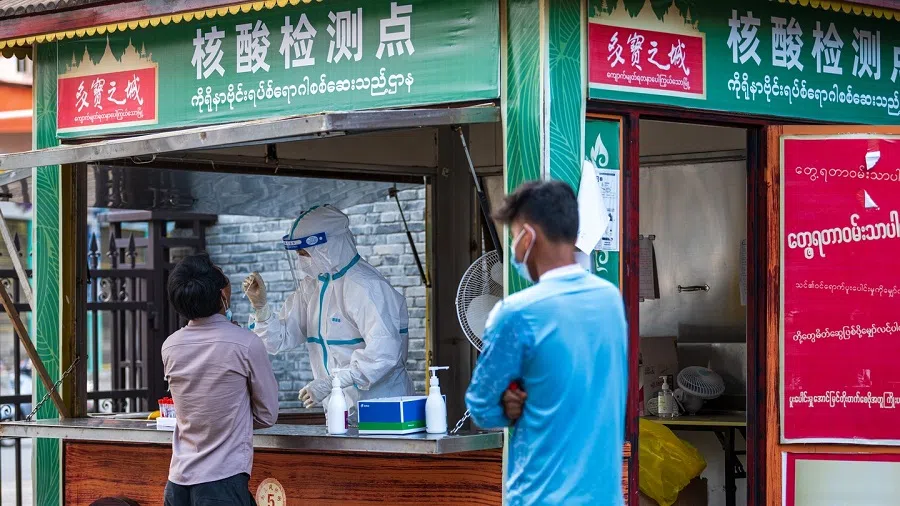
China's decision to adopt a zero-Covid policy has put the country under great pressure. Officials are occasionally held accountable for mishandling the pandemic, which forces everyone to stay on high alert at all times. In a small border city like Ruili where the pandemic situation is highly stressful, or in the capital city of Beijing where normal operations must be ensured, officials have more reason to add to anti-epidemic measures, request for repeated nucleic acid amplification tests to be done, expand the scope of quarantine, or even lengthen the quarantine period.
In the face of upholding obligations such as "safeguarding the country's southern gate" or "successfully organising the Winter Olympics as planned", even the strictest of measures seem legitimate. But among these policies, how many are actually professional, scientific, and necessary? How many are just pro-forma measures adopted by officials for the sake of keeping their jobs? And how many are way too extreme?
I really admire the Chinese people living through the pandemic era. They are able to see the big picture and have great tolerance as well. Some people even think that compared to coordinating all the activities of the nation like moves in a chess game or organising the Winter Olympics successfully, if this is what it takes to portray the image of a perfect country on the international stage, what is the big deal about taking a few more nucleic acid amplification tests?
Amid China's current challenging external environment, it is possible that this could invite harsh criticisms from the outside world as well.
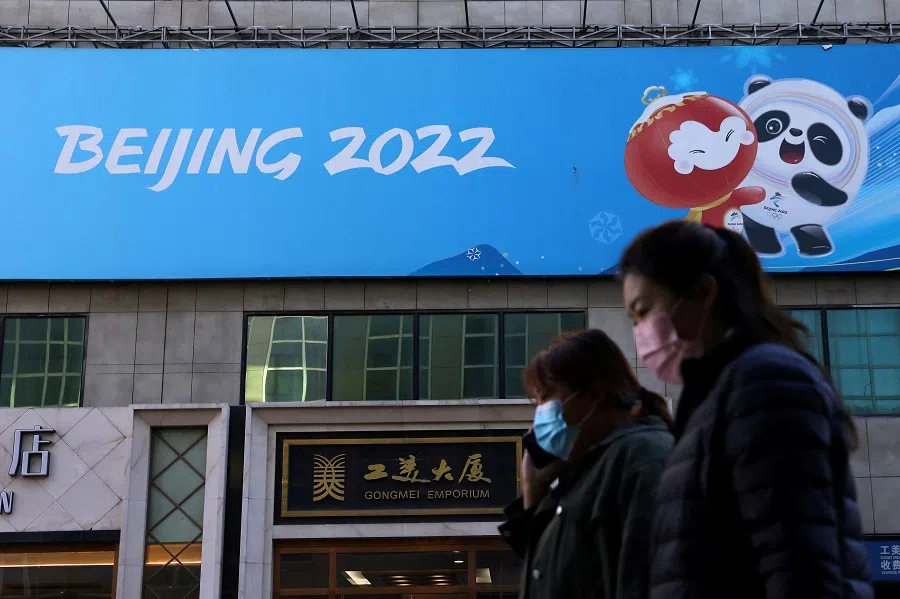
In a society tightly controlled by national power, many people may have no choice but to accept what comes their way. Even if they want to vent their frustrations online, they have to do it carefully.
The long-term existence of the coronavirus is a harsh new reality facing us. Many countries have chosen to live with it but China is following the path of a zero-Covid policy. China boasts of a vast territory and a large population. Coupled with its unique complexities, even if an outbreak starts small, it could spread exponentially within a short period of time and result in a huge number of infections and deaths. Amid China's current challenging external environment, it is possible that this could invite harsh criticisms from the outside world as well.
To persist in the zero-Covid policy or to explore the possibility of living with the coronavirus? China has to decide for itself based on its own national conditions. In this process, is it not also a consideration for the big picture to have preventive measures rolled out at the grassroots be rational and humane so as to reduce the trouble and sacrifices that individuals have to experience and also the fatigue and possible oppositions that may occur as a result?
Related: China's zero-Covid regime: My home quarantine experience in Beijing | Why China is determined to achieve 'zero-Covid' | Singapore health experts: China the best positioned country to aim for zero-Covid | Is China taking policies to the extreme to achieve zero-Covid? | Who saved Dr Zhang Wenhong from punishment for questioning China's Covid-19 policy? | A zero-Covid strategy has worked in China, but will it work elsewhere?


![[Big read] When the Arctic opens, what happens to Singapore?](https://cassette.sphdigital.com.sg/image/thinkchina/da65edebca34645c711c55e83e9877109b3c53847ebb1305573974651df1d13a)


![[Video] George Yeo: America’s deep pain — and why China won’t colonise](https://cassette.sphdigital.com.sg/image/thinkchina/15083e45d96c12390bdea6af2daf19fd9fcd875aa44a0f92796f34e3dad561cc)